From the President: Lessons from a great family doctor
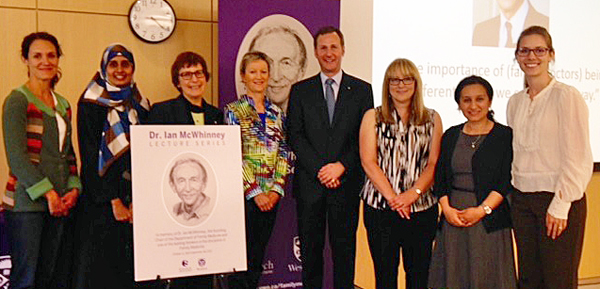 Photo: WONCA President with members of Ian McWhinney’s family, young family
doctors from Western University and Dr Francine Lemire, Chief Executive
Officer of the College of Family Physicians of Canada
Photo: WONCA President with members of Ian McWhinney’s family, young family
doctors from Western University and Dr Francine Lemire, Chief Executive
Officer of the College of Family Physicians of Canada
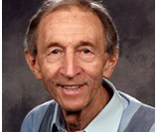 español français
español français
Ian McWhinney was a family doctor from the UK who moved to Canada in 1967 to establish the Department of Family Medicine at Western University in Ontario. Ian influenced the careers and the attitudes of family doctors in many parts of the world, and he was one of the pioneer leaders of the development of the academic basis of our professional discipline. Ian died in 2012 at the age of 85.
Photo : Dr Ian McWhinney OC (1926-2012)
In September I was invited to deliver the inaugural Ian McWhinney lecture named in his honour at Western University.
Like many people in family medicine around the world, I knew and admired Ian from a distance, through his influential writing and from the privilege of being in the audience when he spoke at a WONCA conference.
My own introduction to Ian’s work was in 1988, shortly after I joined the Department of General Practice and Community Medicine at Monash University in Melbourne, Australia, as a junior academic family doctor. The following year, my boss, Professor Neil Carson, another pioneer leader in academic family medicine, handed me a book he had been sent by a publisher to review to see if it might be suitable for teaching our medical students. Neil asked me to read the book and let him know what I thought. The book was the first edition of Ian McWhinney’s now famous Textbook of Family Medicine.
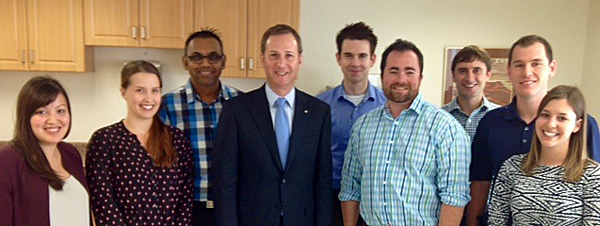 Photo: WONCA President with young family doctors in rural Ontario, Canada
Photo: WONCA President with young family doctors in rural Ontario, Canada
The first chapter was about the Origins of Family Medicine and I found Ian’s brief history of our discipline very interesting, but it was the next chapter, about the Principles of Family Medicine, that opened my eyes to a new way of looking at my chosen career. The nine principles of family medicine, outlined by Ian, articulated in clear terms the work that we do as family doctors, no matter where in the world we live and work. I have shared these nine principles with many groups of medical students and family medicine residents over the years. Here they are:
1. Family physicians are committed to the person rather than to a particular body of knowledge, group of diseases, or special technique. In this simple sentence, Ian captured the humanity of the work we do and our commitment to person-centred care, long before that term became fashionable.
2. The family physician seeks to understand the context of the illness. Ian asked us to consider how the experience of illness impacts on each individual, again part of the person-centred focus of our work.
3. The family physician sees every contact with his or her patients as an opportunity for prevention of disease or promotion of health. Prevention has been neglected in recent years in some parts of the world, but its importance is coming back to the fore with the understanding about the global impact of so-called non-communicable diseases and the importance of prevention and health promotion in avoiding or delaying the onset of heart disease, diabetes, and many cancers and other chronic conditions.
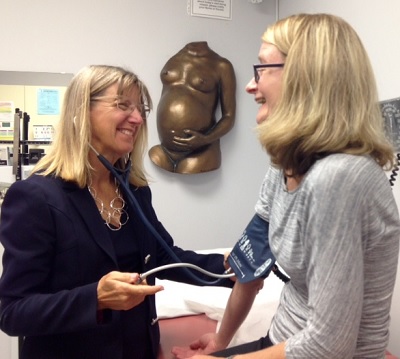 Photo: Dr Jo-Anne Hammond, family doctor at London Health Science Centre, London, Ontario, Canada
Photo: Dr Jo-Anne Hammond, family doctor at London Health Science Centre, London, Ontario, Canada
4. The family physician views his or her practice as a “population at risk”. I like this principle because it captures the work we do in primary care to improve population health. Each of us has the opportunity to observe the illnesses that affected our patient population and look at ways to prevent further morbidity and mortality.
5. The family physician sees himself or herself as part of a community-wide network of supportive and health-care agencies. In some parts of the world, team-based care and the gatekeeper and referral roles of family doctors, are seen as something newly discovered, but they are of course part of our rich tradition.
6. Ideally, the family physician should share the same habitat as their patients. This one is my personal favorite, sounding like something from David Attenborough, but also very true. Ian believed that you can’t truly understand the health needs and concerns of a community, unless you are a part of that community. Being a member of a community allows us to understand the social context of our patients’ lives.
7. The family physician sees patients in their homes. Again a very important part of the work we do, and providing both an extraordinary privilege and the opportunity to understand the context of our patients’ lives better and the challenges that they face each day. Although home visits have become less common in some parts of the world, they are making a resurgence through the development of family health teams in some countries, and even through telehealth, which at least allows us to catch a glimpse of our patients in their home surroundings.
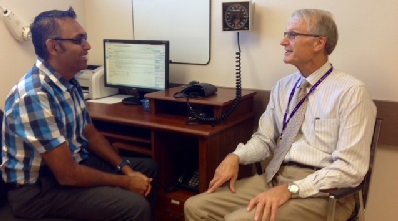 Photo: Dr Vikram Dalal, rural family doctor at Thames Valley Family
Health Centre, Mount Brydges, Ontario, Canada meeting with Professor
Stephen Wetmore
Photo: Dr Vikram Dalal, rural family doctor at Thames Valley Family
Health Centre, Mount Brydges, Ontario, Canada meeting with Professor
Stephen Wetmore
8. The family physician attaches importance to the subjective aspects of medicine. Again one of the important lessons we learn as family doctors. Trust your instincts. Listen to your patients. And especially listen to the carers of your patients. Never ignore a parent’s concerns about their young child. Or a child’s concerns about their ageing parent.
9. The family physician is a manager of resources. At the time I thought this final principle was a bit dry, but I now realise it is one of the major contributions family doctors make to our nations. Through judicious use of expensive investigations and through appropriate management of referrals to other clinicians and services, we ensure that our nations have the finances available to provide health care to all people, rather than just to an entitled subgroup.
These are nine seemingly simple principles that encapsulate our role and our contribution as family doctors. For me, this is part of Ian’s great legacy, his ability to describe with such clarity the important work we do.
A few days later, my boss, Neil Carson, asked me what I thought about the book. I said we should be using it as part of our teaching. He said he would think about that. He then asked if he could have the book back. I said no, I’m keeping it. He got the message.
As family doctors, we are indebted to our teachers; our family doctor colleagues, like Ian, who have taught us how to practise medicine in our communities using a combination of “scientific knowledge and tender loving care”.
Michael Kidd
WONCA President
Read the full text of the oration